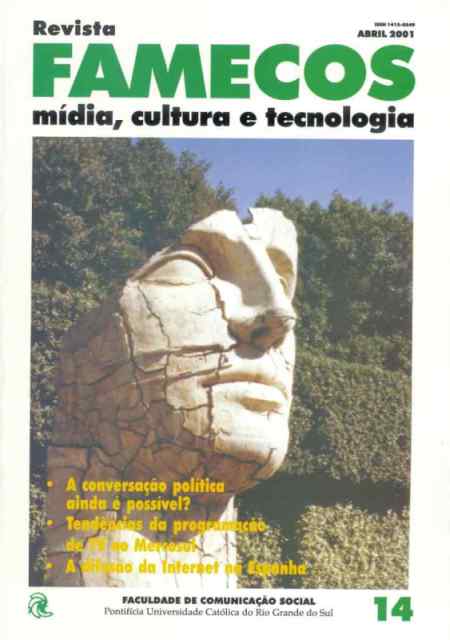Roland Barthes: semiology, media and fait divers
DOI:
https://doi.org/10.15448/1980-3729.2001.14.3108Keywords:
Roland Barthes, Discourse, SemiologyAbstract
Roland Barthesʼs semiology is gifted with especial traits. It cannot be cemented within the walls of linguistics. It calls for other reference points. It goes after a translinguistics. It invests on the role of the Media as the object of its researches. This essay, despite its limitations, will attempt to establish the relationship between Barthesʼs semiology and the media, reflecting on some basic categories which symbolize them.
Downloads
References
ADORNO, Theodor e HORKHEIMER, Max. Dialética do Esclarecimento - Fragmentos Filosóficos. 2 ed. Rio de Janeiro: Zahar, 1987.
ANGRIMANI, David. Espreme que sai Sangue. São Paulo: Summus, 1994.
BARTHES, Roland. Mitologias. 9 ed. Rio de Janeiro: Bertrand Brasil, 1993.
______. Aula. São Paulo: Cultrix, s. d.
______. Escritores, Intelectuais, Professores e outros Ensaios. Lisboa: Presença, s.d.
______. O Rumor da Língua. Lisboa: Edições 70, s. d.
______. Fragmentos de um Discurso Amoroso. 13 ed. Rio de Janeiro: Francisco Alves, 1984.
______. Ensaios Críticos. Lisboa: Edições 70, 1971.
FREUD, Sigmund. A Interpretação dos Sonhos. RJ: Imago, 1987.
LACAN, Jacques apud HARARI, Roberto. Uma Introdução aos Quatro Conceitos Fundamentais de Lacan. Campinas: Papirus, 1990.
______. Seminário: As Psicoses. Rio de Janeiro: Jorge Zahar, 1994.
WALKER, David. Outrage and Insight: Modern French Writters and the Fait Divers. Oxford/Washington: Berg Publishers, 1995.
Downloads
Published
How to Cite
Issue
Section
License
Copyright
The submission of originals to Revista Famecos implies the transfer by the authors of the right for publication. Authors retain copyright and grant the journal right of first publication. If the authors wish to include the same data into another publication, they must cite Revista Famecos as the site of original publication.
Creative Commons License
Except where otherwise specified, material published in this journal is licensed under a Creative Commons Attribution 4.0 International license, which allows unrestricted use, distribution and reproduction in any medium, provided the original publication is correctly cited.






